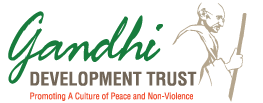Satyagraha reporters
It’s the start of the New Year and South Africans need to brace themselves for further interest rate, food and petrol price hikes. Approximately 43% of South Africans live below the breadline and barely afford the basic necessities for survival. The expected food and fuel price hikes could spell disaster for the average man on the street. The best advice is for people to plan ahead and budget correctly.
According to economists, consumers will be emptying their pockets and spending a lot more of their salaries on food this year. As of 14 January 2008 a loaf of bread will cost 40 cents more. Grain South Africa has announced that it has had a shortfall of 1.3millon tons of grain which it will have to import into the country which will mean a further increase on wheat products depending on international prices and exchange rates. This could also see an increase in poultry and pork prices as both require wheat grains for growth. Meanwhile as economists expect meat and poultry prices to rise they predict a drop in the price of vegetables, bringing some reprieve to consumers.
In addition to food price hikes, emerging oil markets in Asian countries such as China and India have seen global oil prices rocket, threatening further petrol price hikes. This will undoubtedly place an additional financial strain on commuters and motorists.
Consumers will not be getting relief in their pockets any time soon and with the possible increase of interest rates when the Reserve Bank’s monetary policy committee meets at the end of this month, consumers need to desperately tighten their spending!
Here are some tips to spending wisely
Pay cash for purchases or determine what you can spend on your credit card and stick to your limits.
Be realistic when purchasing – don’t make hasty decisions and don’t go overboard. Purchase what you need and not what you desire.
When purchasing on your credit card, consider your limit and stay within it.
If you use your budget facility, make the repayment period as short as possible.
Try to avoid buying on credit or limit your spending so the entire amount can be paid the following month so that you will ensure that you don’t pay interest on your purchases – remember interest costs mount up.
When buying on credit, try and use stores that offer interest free repayment periods.
Avoid paying your installments’ late. This leads to higher interest rates.
Concerned South Africans
We spoke to South Africans regarding the looming price increases and many expressed their concern. “I think the price increases are atrocious. If we continue in this way we are going to become like Zimbabwe. How is South Africa supposed to develop when our people can barely afford the necessities in life?” says Esivani Naidoo from Rossburgh. Meanwhile Tamlyn Canham from Newlands East said that it is ridiculous that the price of bread has gone up so much. “For many people especially the poor, bread is their staple diet. In addition to an escalation of the food price, fuel increases will lead to an increase in fares for public transport and this means less money in the pockets of the ordinary man on the street,” she expressed.
Interest Rate Hikes
Looming interest rate hikes could see increasingly cash-strapped consumers facing the very real prospect of losing their vehicles and homes if they are unable to make their monthly repayments. Reserve Bank Governor Tito Mboweni has urged people to "tighten their belts" after it was announced that inflation had reached an annual rate of 7,3 percent – the highest in four-and-a-half years. Economists are now warning consumers to rethink their budgets and cut back on spending – or face the consequences.
